Warhammer 40K Rogue Trader review: Being evil has never been more fun
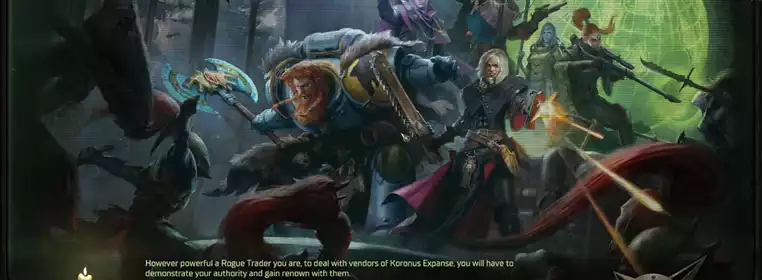
We all know which role-playing game people are going to remember most from 2023, but as the year winds down, Owlcat Games has treated us to its latest title - Warhammer 40K Rogue Trader.
The game is certainly one for hardcore CRPG fans, boasting a litany of complex gameplay systems and mechanics, heaps of lore and dialogue, and a dedication to the rich source material that vividly recreates the universe of 40K in all its grimdark glory. The Warhammer franchise may just have its best game since Dawn of War.
GGRecon Verdict
While lacking the polish and production value that saw the genre float into the mainstream this year, Rogue Trader is a refreshing CRPG experience that values everything that makes games like these so special.
It's impossibly expansive, full of rich characters and stories, complex without being over-encumbered, and so much more that doesn't fit into a snappy conclusion. Owlcat has really gone out of its way to bring the Warhammer 40K universe to life here, and in doing so, it's created one of the most memorable RPGs of the decade.
A grim expanse
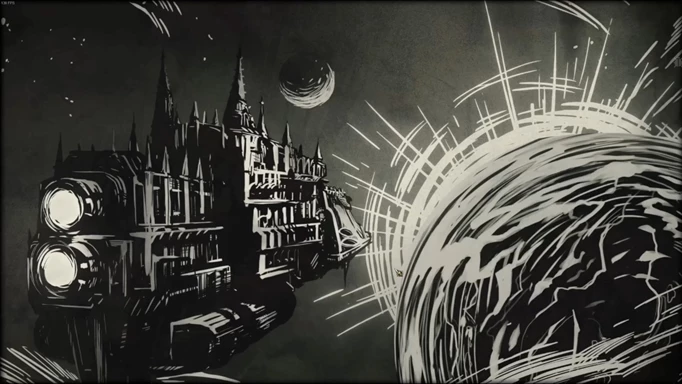

Rogue Trader is set in the Koronus Expanse region of WH40K's version of the Milky Way galaxy, a mostly unexplored frontier on the reaches of Imperium-controlled space. Your character undertakes the titular role of Rogue Trader, the hereditary leader of a merchant/conquistador dynasty given free rein by the emperor to explore the fringes of the galaxy and essentially act as you please.
Anyone familiar with the WH40K mythos and hodgepodge of grimdark lore will know it doesn't necessarily make the best setting for a role-playing game, mostly due to the complete lack of freedom 99.9% of humans, Xenos, mechs, and more have in the galaxy.
Heading up a CRPG with a Space Marine protagonist, for example, likely wouldn't work well, but the role of Rogue Trader is perfectly suited for this. They enjoy the most agency of nearly any living human - even to the point of dabbling in heresy with impunity - and they have the opportunity to make massive choices which affect entire planets and star systems with very little oversight.
Rogue Trader really nails the look and feel of the Warhammer 40K setting. Gothic architecture can be found everywhere, fascist iconography is built into everything, and it features the aged-in technology look where everything is more advanced than our modern day, but in a way that feels almost ancient and primitive. There's also a wide variety of environments to explore across the dozens of worlds you can land on, ranging from massive gothic cities to lush jungles, and spaceships tainted with rust and decay.
It's worth noting that you don't need to know much about Warhammer 40K to get enjoyment from this game, as it does a great job of drip-feeding the lore and establishing the status quo of the universe in the early hours. As the game goes on, this becomes more of an issue, as conversations are filled with tonnes of jargon, making it hard to parse what is going on unless you are paying full attention.
This is where I wish the game could be a little better about tooltips. Most modern RPGs now let you mouse over certain text to learn more about what they mean in the lore, and while Rogue Trader has this too, it doesn't do it enough considering how frequently esoteric terms get thrown out there.
Light on the 4X
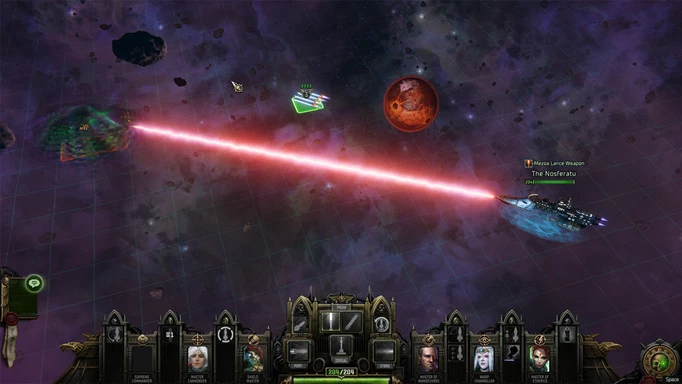

Rogue Trader plays exactly how you would expect an RPG of this style to, allowing you to take your time and soak in the world around you. The prologue is a narrow slice that introduces the core of combat and dialogue to the player, before opening up with chapter one as you can begin to explore, build your party, and decide on a progression route for your character.
In addition to this standard CRPG gameplay formula, Rogue Trader builds out the game with a myriad of different systems to add flavour to the universe and expand your actual role as head of dynasty. For example, the Koronus Expanse being unexplored isn't just flavouring, it's a feature. You'll spend a lot of time after chapter one just exploring space, as you map out safe routes through the warp to visit different star systems. There's even a sort of strategy to this, as you save Navigator Points to make routes safer and find quicker ways across the expanse.
This opens up lots of the side content, with optional locations to explore, events to experience, enemy ships to battle in the turn-based space combat, and planets to colonise as part of a management system that rewards you bonuses and lets you play out small narrative arcs for each planet under your protection. While far from being a strategy game, some of these systems resemble the gameplay ideas of a 4X game quite closely and do a lot to add extra depth to not just the world, but your role and agency within it.
If you really don't want to extend the gameplay beyond the typical combat and narrative dynamic, these aspects are all optional, but I found they fit in seamlessly to the experience without ever taking the spotlight away from the core of the game.
It does a lot to make the universe you're in feel massive; you aren't just wandering from one map to another to just follow a story, with the middle being filled in with your imagination. Instead, you are purposefully choosing your route and the activities you engage with along the way to your next destination.
Immoral compass
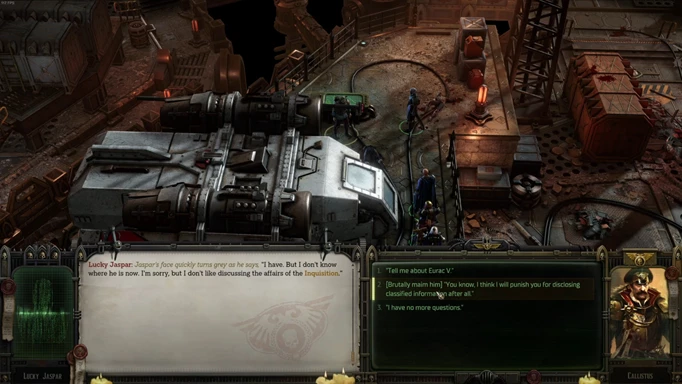

The real quality of Rogue Trader comes from how it represents WH40K and revels in the themes, tone, and brutality of the IP. For those not fully aware of how wild 40K can be, it essentially birthed the subgenre of grimdark fiction, which heavily features dystopian settings, amoral characters, and reams of horrific violence. If you're looking for something more optimistic and hopeful, this may not be the game or universe for you, but if you find catharsis in satirising the worst qualities of humanity - you're in for a ride.
Rogue Trader doesn't stray away from how horrible the universe is for the majority of people, and being a capital B b*stard is essentially the default role-playing experience. For example, at one point, I forced an allied soldier into giving me secret information to further an objective by pulling rank, and it gave me the option to brutally maim them as a punishment. There weren't any consequences for this. It was presented as an option purely because you can do it and because it fits the feudal class dynamics of the Imperium of Man.
This complete disregard for typical morality is something that stands out within the main three moral alignments presented in the game: Dogmatic, Heretical, and Iconoclast. Dogmatic and Heretical are presented as the competing extremes, the former meaning you're a loyal follower of Imperium's state religion, and the latter meaning you flirt with the corrupting power of Chaos.
Iconoclast on the other hand is more of a middle ground, representing humanist values like freedom and compassion - the typical 'good' moral alignment found in most RPGs. The decision to let you stray from the default extremes of 40K is important from a choice perspective. Being kind in a game like Baldur's Gate 3 is easy, it's the expected default, but being kind in a universe where you'll be punished for it is a really powerful thing for role-playing and building your own narrative.
While RPGs are often more nuanced with morality than most games (born about from the need to craft interesting choices for the player to make), Rogue Trader purposefully subverts this, with the two main Dogmatic and Heretical alignments often falling into cartoonish villainy.
This doesn't lessen any of these choices though, as frankly not everything needs to be a trolley problem that has you pondering the value of a human life; sometimes there's fun to be found in being a piece of sh*t in a safe environment. Plus, there's always Iconoclast if you really can't bring yourself to be too awful.
It's not always so grim though, as an important part of any media that revels in being dark is juxtaposing it with light. Moments of celebration, joy, and camaraderie are all the more special when they are few and far between. The low amount of moments like these make each one even more special when they happen, and in Rogue Trader, it allows them to be some of the most meaningful parts of the experience.
Blood & guts
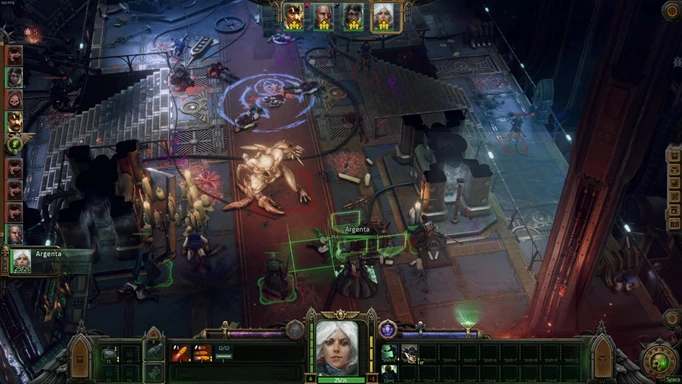

Outside of your exploration and text-dense conversations, there's a meaty turn-based combat system that appears simple on the surface in terms of how you play, but is complex under the hood with tonnes of stats and numbers to fiddle around with when optimising characters. Even the tooltips for abilities force you to do maths to actually understand exactly what they do. While being upfront like this is useful for clarity of information, it does slow the onboarding process a bit and can make understanding the details of combat like learning a new language.
One thing that immediately stood out was just how powerful you and your party are. I decided to go with normal difficulty just because I'd heard how hard Owlcat games could be, but even after 50+ hours, I've faced very few combat encounters that actually got my team wiped.
They seem to curate this by going quite heavy on the number of combat encounters and by outnumbering you frequently, and frankly, I think it's the perfect balance so far. 40K is rooted in war gaming first and foremost, and it sticks to these roots without taking away from the other aspects that make RPGs interesting to play; it nails the ratio of gameplay so far without going too far in one direction.
Combat also fits the tone 40K tone perfectly, with most enemies dying in a splendour of blood and guts from even the most basic weapons. The combat focus is also fairly apparent in the progression system, where most of the choices you get upon levelling relate to new combat abilities or passives. You can still level normal stats that affect dialogue options or behind-the-scenes dice rolls, making for rich role-playing and choice in each encounter, but it's clear where the biggest focus for progression lies.
It's also worth warning about Owlcat's tendency to release games in a very buggy state, with their previous Pathfinder games taking a while to shape up into a complete product. My review-in-progress stated that I hadn't seen many in the first chapter, but as I've reached further into Rogue Trader, they have become more apparent and the game, more unstable. I've yet to face anything game-breaking, but it's worth keeping in mind that the more you play, the worse it will get.
The Verdict
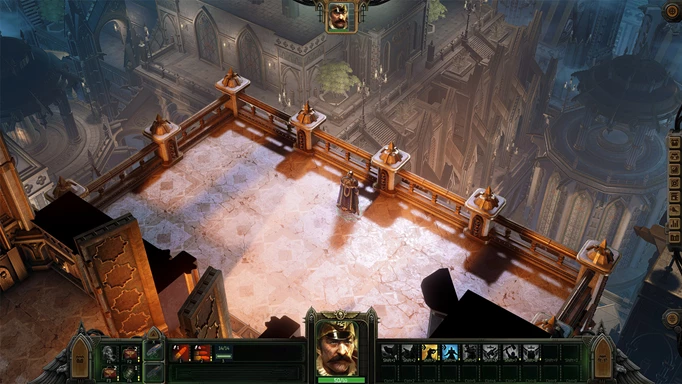
 Click to enlarge
Click to enlargeWhile lacking the polish and production value that saw the genre float into the mainstream this year, Rogue Trader is a refreshing CRPG experience that values everything that makes games like these so special.
It's impossibly expansive, full of rich characters and stories, complex without being over-encumbered, and so much more that doesn't fit into a snappy conclusion. Owlcat has gone out of its way to bring the Warhammer 40K universe to life here, and in doing so, it's created one of the most memorable RPGs of the decade.
4.5/5
Reviewed on PC. Code provided by the publisher.
